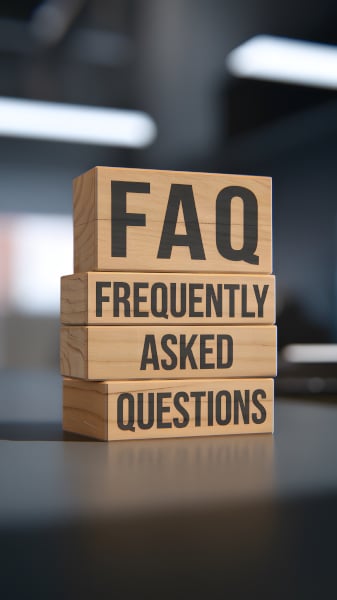Understanding how missives work is essential when buying or selling property in Scotland. Missives are the formal written letters exchanged between solicitors that form the binding contract in every Scottish property transaction. This guide explains how missives are created, what the negotiation process involves, how suspensive conditions operate, and why the Scottish Standard Clauses underpin most contracts. Whether you’re a first-time buyer or preparing to sell, knowing how missives function will help you navigate your Scottish property transaction with confidence.
If you’re buying or selling property in Scotland, you’ll quickly encounter the term “missives”. This uniquely Scottish legal concept underpins every property transaction north of the border. Unlike the system in England and Wales, where contracts are exchanged simultaneously, Scottish property law operates through a distinctive process of offer and acceptance that creates a legally binding contract before money changes hands.
Missives represent the formal written correspondence between the buyer’s and seller’s solicitors that ultimately forms the contract for the sale and purchase of property. Understanding how this process works is essential for anyone involved in a Scottish property transaction, whether you’re a first-time buyer, experienced property investor, or homeowner looking to sell.
The missive system provides certainty and legal protection for both parties, but it can seem complex if you’re unfamiliar with Scottish conveyancing practice. Let’s explore what missives are, how they’re constructed, and what you need to know about the negotiation process leading to conclusion of missives.

The Building Blocks of Your Property Contract
A missive is essentially a formal letter that forms part of the contractual correspondence between solicitors. The contract itself is built through a series of these letters, exchanged back and forth until both parties reach agreement on all terms. This exchange creates what becomes a legally binding contract for the property transaction.
The process typically involves several key documents that work together to form the complete contract:
- The Initial Offer: The buyer’s solicitor submits a formal written offer to purchase the property, setting out the proposed price and conditions.
- The Qualified Acceptance: The seller’s solicitor responds, usually accepting some terms while proposing changes to others that better protect their client’s interests.
- Further Letters: Additional correspondence continues until all points are agreed, with each letter forming part of the contractual chain.
- Final Acceptance: When all terms are agreed, a letter of acceptance without qualification is issued, creating the binding contract.
This exchange of letters collectively forms “the missives”, and when agreement is reached, missives are said to be concluded. This moment is crucial because it creates legal obligations for both buyer and seller.
The Scottish Standard Clauses Framework
Most Scottish solicitors work from a standardised template known as the Scottish Standard Clauses. These clauses, regularly updated by the Law Society of Scotland, provide a consistent framework for property transactions across Scotland. They cover essential matters like the date of entry, what’s included in the sale, title conditions, and various legal warranties.
Using these standard clauses offers several advantages. They’re familiar to all Scottish conveyancing solicitors, reducing the time spent negotiating basic terms. They’ve been carefully drafted to fairly balance the interests of buyers and sellers. However, solicitors will often modify these clauses or add bespoke conditions to reflect their client’s specific circumstances and requirements.
Negotiating Your Way to Conclusion of Missives
The negotiation process requires careful attention to detail. Your solicitor will work to protect your interests while moving the transaction forward efficiently. Understanding the typical negotiation points helps you appreciate what your solicitor is doing on your behalf.
Common areas of negotiation include the purchase price, the date of entry when ownership transfers, what fixtures and fittings are included, and any conditions that must be satisfied before the contract becomes unconditional. Your solicitor might also negotiate provisions about the property’s condition, access for surveys, or arrangements for viewing before completion.
Throughout this process, each letter of qualified acceptance moves the parties closer to agreement. When all points are resolved and a final acceptance without qualification is issued, missives concluded status is achieved, creating binding obligations on both sides.
Understanding Suspensive Conditions
Suspensive conditions are provisions that must be satisfied before the contract becomes fully binding and enforceable. These conditions “suspend” certain obligations until specific events occur or requirements are met. They’re an important protective mechanism in Scottish property transactions.
Typical suspensive conditions might include obtaining a satisfactory survey report, securing mortgage finance, or receiving acceptable searches and title documentation. Until these conditions are satisfied or waived, either party may have the right to withdraw from the transaction without penalty.
Once all suspensive conditions are purified (satisfied), the contract becomes unconditional. At this point, both parties are fully committed to completing the transaction, and withdrawal would constitute a breach of contract with potentially serious financial consequences.
Get Expert Guidance for Your Property Transaction
Navigating the missives process requires specialist knowledge of Scottish property law and conveyancing practice. While this guide provides an overview, every property transaction has unique aspects that need professional attention. Your solicitor will ensure that the missives properly protect your interests and that you understand your obligations before missives are concluded.
Don’t leave your property transaction to chance. Contact an experienced Scottish property solicitor who can guide you through the offer and acceptance process, negotiate effectively on your behalf, and ensure your interests are fully protected throughout the transaction.

Your Roadmap Through Scottish Property Missives
Missives form the contractual foundation of every Scottish property transaction. Through the formal exchange of letters between solicitors, a binding contract is created that protects both buyer and seller. Understanding this process, from initial offer through to conclusion of missives, helps you appreciate the legal framework that makes Scottish property transactions secure and certain.
With professional legal guidance, the missives process ensures your property purchase or sale proceeds smoothly, with your interests properly protected at every stage. The combination of Scottish Standard Clauses and bespoke provisions creates a contract tailored to your specific transaction while maintaining the legal certainty that characterises Scottish conveyancing.
Why Choose Wallace Quinn
Understanding missives is one thing, but having the right solicitor guiding you through them makes all the difference. At Wallace Quinn, we’ve been helping clients buy and sell property across Scotland for decades. Our team combines technical expertise with a practical, down-to-earth approach, making sure you always know where you stand and what each stage of the process means for you. We deal with the negotiations, protect your position and keep your transaction moving smoothly, so you can focus on the excitement of your next home or investment.
Whether you’re a first-time buyer or a seasoned mover, we take the time to understand your goals and explain the legal detail in a way that’s clear and straightforward. With offices in Glasgow, Livingston and Bathgate (The Conveyancing Practice), we’re well placed to support clients throughout the central belt and beyond.
Ready to move forward?
If you’re planning a property purchase or sale and want clear advice, responsive communication and a team that genuinely looks after your interests, get in touch with Wallace Quinn today. We’ll guide you through the missives process from start to finish and ensure your transaction is handled with care, efficiency and confidence.
🔎 FAQ – Understanding Missives in Scottish Property Transactions
Q: What are missives in Scottish property law?
A: Missives are the formal letters exchanged between the buyer’s and seller’s solicitors that together form the legally binding contract for a property sale in Scotland. The contract is created once both sides agree on all terms.
Q: When do missives become legally binding?
A: Missives become binding when the seller’s solicitor issues a final acceptance without qualification. At that point, the buyer and seller are contractually committed to complete the transaction.
Q: How are Scottish missives different from the system in England and Wales?
A: In Scotland, the contract is formed through the missive letters, often well before the date of entry. In England and Wales, contracts are usually exchanged simultaneously in a standalone process. The Scottish approach creates earlier certainty.
Q: What role do the Scottish Standard Clauses play?
A: Most solicitors use the Scottish Standard Clauses as a starting point. These standardised terms cover issues like the date of entry, title conditions, and warranties. They’re then adapted to reflect the specifics of each transaction.
Q: What are suspensive conditions?
A: These are conditions that must be met before the missives become fully binding. Examples include securing mortgage finance, receiving satisfactory survey results or obtaining acceptable title searches. If a suspensive condition isn’t met, a party may withdraw without penalty.
Q: Can a buyer or seller withdraw after missives are concluded?
A: Only in very limited circumstances. Once missives are concluded, withdrawal would normally be a breach of contract, potentially resulting in serious financial consequences.

Q: What are common points of negotiation within missives?
A: Negotiations often involve the purchase price, the date of entry, what’s included in the sale, property condition, and any conditions that must be satisfied before the contract becomes unconditional.
Q: Do missives cover what fixtures and fittings are included?
A: Yes. The missive letters specify what is included in the sale, such as white goods, light fittings, curtains, and garden structures.
Q: Who handles the missives process?
A: The entire process is managed by the solicitors acting for the buyer and seller. They draft, negotiate, and conclude all missive letters on their client’s behalf.
Q: Why is professional legal advice essential?
A: Missives form the binding contract for your property sale or purchase. A solicitor ensures that your interests are protected, suspensive conditions are properly drafted and negotiated, and that no unfavourable terms slip through.
